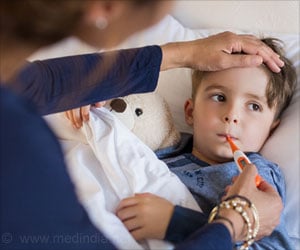
Children With COVID-19 Develop Mental Disorders
More Of the 44% of children with neurological symptoms, the most common were headaches and acute encephalopathy, or in simpler terms, “an altered mental status,” doctors say.”The SARS-CoV-2 virus can affect pediatric patients in different ways: It can cause acute disease, where symptomatic illness comes on soon after infection, or children may develop an inflammatory condition called MIS-C weeks after clearing the virus,” says lead study author Dr. Ericka Fink, pediatric intensivist at UPMC Children’s Hospital of Pittsburgh, and associate professor of critical care medicine and pediatrics at Pittsburgh, in a university release. “One of the consortium’s big questions was whether neurological manifestations are similar or different in pediatric patients, depending on which of these two conditions they have.”
Multisystem inflammatory syndrome in children (MIS-C) was an important side-effect of COVID-19 in children. Overall, 30 pediatric critical care centers located all over the world treating 1,493 children participated in this study. The average age of these children was 8 years and at least 47% of these children were girls. Among that entire patient base, doctors diagnosed 86% (1,278) with acute COVID-19. Meanwhile, another 14% (215) had MIS-C. Characterized by organ dysfunction, a fever, and inflammation, MIS-C usually develops weeks after recovering from COVID-19.
Scientists have found that 44% of children hospitalized due to COVID-19 are now suffering from brain problems. Headaches and changes in mental conditions among children are known as severe encephalopathy. About 44% of children included in the research were diagnosed with at least one neurological symptom. Headache and acute encephalopathy were most common in 21% of children and altered mental status in 16% of children.
Besides an altered mental state and headaches, seizures were the third most common neurological symptom among children with COVID-19. Regarding MIS-C, the most common neurological symptoms were headache, acute encephalopathy, and dizziness. While much more rare, other reported symptoms include stroke, loss of smell, psychosis, and vision issues, across both groups.
“Thankfully, mortality rates in children are low for both acute SARS-CoV-2 and MIS-C,” Dr. Fink explains. “But this study shows that the frequency of neurological manifestations is high and it may actually be higher than what we found because these symptoms are not always documented in the medical record or assessable. For example, we can’t know if a baby is having a headache.”
It’s important to note that neurological symptoms were actually more frequent among pediatric MIS-C patients than those dealing with acute COVID-19. Similarly, kids with MIS-C were also more likely to develop at least two neurological symptoms. Study authors have already started work on a follow-up study aimed at assessing the long-term impact of both MIS-C and COVID-19 on recovered children.
“Another long-term goal of this study is to build a database that tracks neurological manifestations over time not just for SARS-CoV-2, but for other types of infections as well,” Dr. Fink concludes. “Some countries have excellent databases that allow them to easily track and compare children who are hospitalized, but we don’t have such a resource in the U.S.”
Source: Medindia
Stay connected with us on social media platform for instant update click here to join our Twitter, & Facebook
We are now on Telegram. Click here to join our channel (@TechiUpdate) and stay updated with the latest Technology headlines.
For all the latest Health News Click Here
For the latest news and updates, follow us on Google News.

